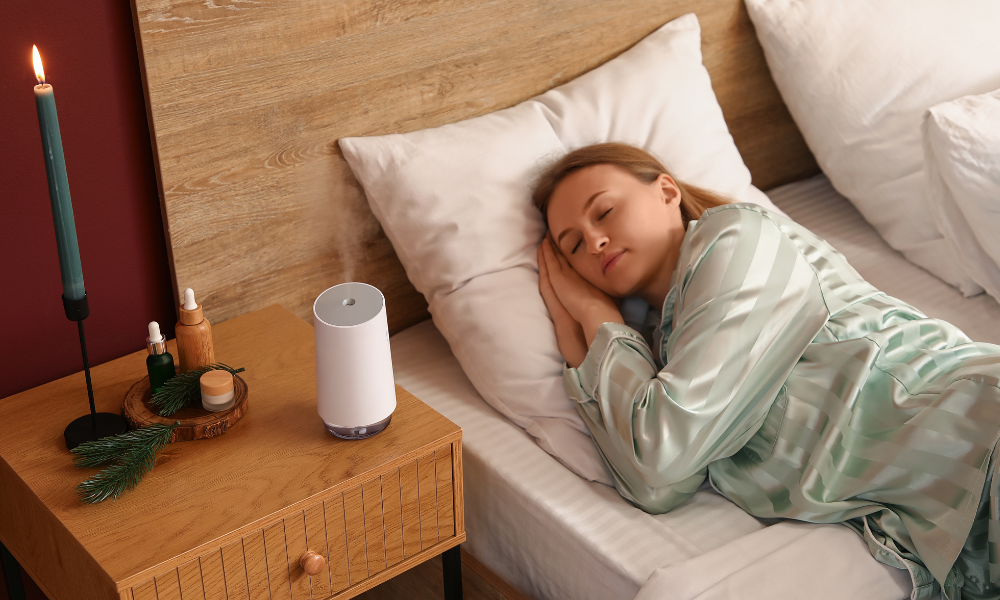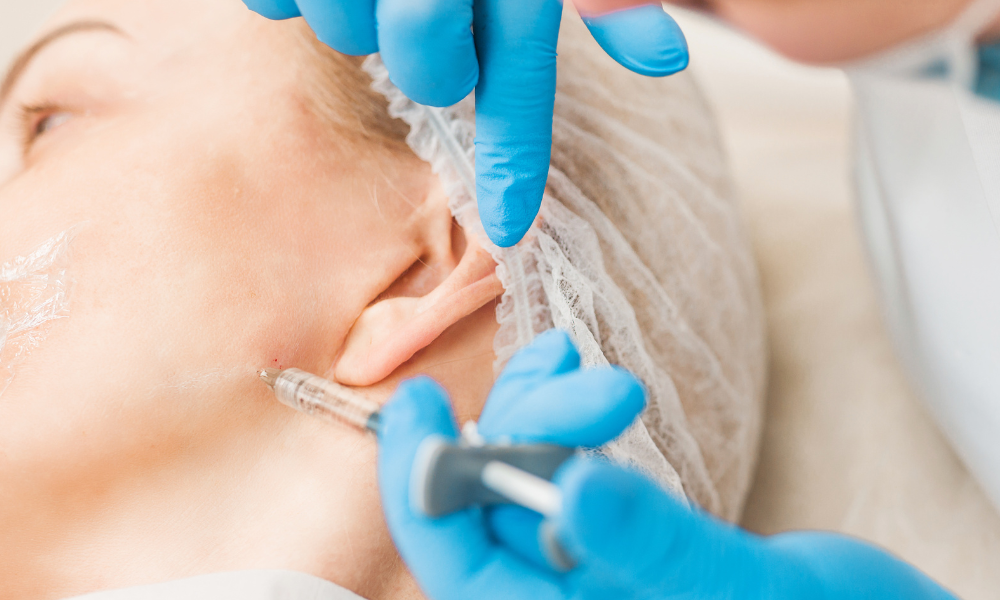
Sleep apnea and TMJ disorders can significantly impact daily comfort and overall well-being. However, by incorporating practical lifestyle changes and implementing healthy habits, you can actively manage these conditions and improve your quality of life. This blog post provides a comprehensive checklist of lifestyle modifications that can enhance sleep quality, reduce TMJ symptoms, and empower you to take control of your health.
By following this guide, you can work in conjunction with your healthcare provider at Columbia Center for Sleep Apnea and TMJ to develop an individualized plan tailored to your needs. By making these lifestyle changes, you can alleviate symptoms, support ongoing treatment, and gain a newfound sense of confidence in managing sleep apnea and TMJ disorders.
1. Maintain a Healthy Weight
Carrying excess weight, particularly around the neck and chest, can contribute to a higher risk of developing sleep apnea due to increased pressure on the airways. Maintaining a healthy weight through proper diet and regular exercise can help alleviate the severity of sleep apnea symptoms and improve overall health.
- Eat a well-rounded, balanced diet: Focus on whole foods such as fruits, vegetables, lean protein sources, and whole grains to maintain a healthy weight.
- Exercise regularly: Aim for at least 150 minutes of moderate-intensity aerobic activity or 75 minutes of vigorous-intensity aerobic activity per week, alongside muscle-strengthening activities on two or more days a week.
- Monitor your BMI (body mass index): Keeping track of your BMI can help assess whether you are in a healthy weight range for your age and height.
2. Prioritize Sleep Hygiene
Maintaining good sleep hygiene is essential for managing sleep apnea symptoms and promoting a healthy sleep environment. This practice involves creating a comfortable sleeping environment and adopting habits that support uninterrupted rest.
- Establish a regular sleep schedule: Set a consistent bedtime and wake-up time, even on weekends, to ensure your body and mind are well-rested.
- Limit exposure to electronic devices before bedtime: The blue light emitted from screens can interfere with your natural sleep patterns. Aim to power down electronic devices at least 1 hour before bedtime.
- Create a peaceful sleep environment: Make sure your bedroom is quiet, dark, and cool (around 65°F) for optimal sleep quality. Consider using blackout curtains, eye masks, or white noise machines to create a comfortable space.
- Avoid heavy meals & stimulants before bed: Consuming heavy, spicy, or fatty foods can cause discomfort and disrupt sleep. Limit caffeine and alcohol consumption several hours before bedtime, as they can lead to fragmented and poor-quality sleep.
3. Practice Stress Management Techniques
TMJ disorders are often linked to stress, which can exacerbate teeth grinding (bruxism) and jaw clenching. Incorporating stress management techniques into your daily routine can help reduce TMJ-related symptoms.
- Meditation: Mindful meditation has been shown to decrease stress levels, with one study indicating that just 20 minutes of mindfulness practice daily can significantly decrease stress levels.
- Breathing exercises: Deep breathing techniques, such as diaphragmatic breathing, can help lower stress and promote relaxation, improving overall TMJ symptoms.
- Participate in calming activities: Engage in hobbies and activities that you find relaxing, such as yoga, reading, or taking a walk in nature.
4. Improve Body Posture
Poor posture can contribute to TMJ pain by placing undue stress on the jaw joints. Adopting proper body posture can aid in alleviating TMJ discomfort and reducing the risk of developing further complications.
- Adjust your workspace: Ensure your computer monitor is at eye level and your chair supports the natural curve of your lower back. Use a headset for phone calls to avoid straining your neck and jaw.
- Avoid slouching: Slouching can cause you to jut your jaw forward, adding stress to your TMJ. Aim to maintain a neutral spine and relax your jaw throughout the day.
- Consider physical therapy: A physical therapist can assess your posture and recommend specific exercises to strengthen the muscles that support proper alignment.
5. Quit Smoking
Smoking has been linked to both sleep apnea and TMJ disorders, as it can contribute to airway inflammation and worsen bruxism. Quitting smoking can lead to significant improvements in your overall health, as well as reduce sleep apnea and TMJ disorder symptoms.
- Seek professional support: Consult with your healthcare provider for guidance and support on quitting smoking. Consider utilizing resources such as nicotine replacement therapy, counseling services, or support groups.
- Use available resources: The American Lung Association offers resources and tools to help you through the process of quitting smoking.
Incorporating these lifestyle changes into your daily routine can significantly enhance your ability to manage sleep apnea and TMJ disorders. By working in tandem with your healthcare provider and making a concerted effort to adopt these healthy habits, you can find relief from symptoms and improve your overall well-being.
Take Control of Your Sleep Apnea and TMJ Disorders with Lifestyle Changes
In conclusion, embracing these lifestyle changes can significantly improve your ability to manage sleep apnea and TMJ disorders. By focusing on maintaining a healthy weight, prioritizing sleep hygiene, practicing stress management, improving body posture, and quitting smoking, you can dramatically enhance your overall quality of life and find relief from these conditions.
At Columbia Center for Sleep Apnea and TMJ, Dr. Jared Bloxham is here to support you on your journey toward optimal health. Schedule a consultation with us today to discuss how combining lifestyle changes with personalized treatment plans can provide the best possible outcome for your unique situation. Trust our
center for sleep apnea and TMJ in Benton City to provide compassionate, expert care in your quest to conquer sleep apnea and TMJ disorders, and embrace a happier, healthier life.











